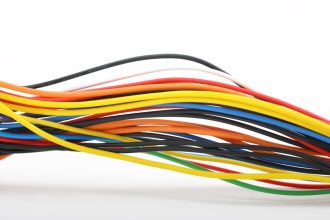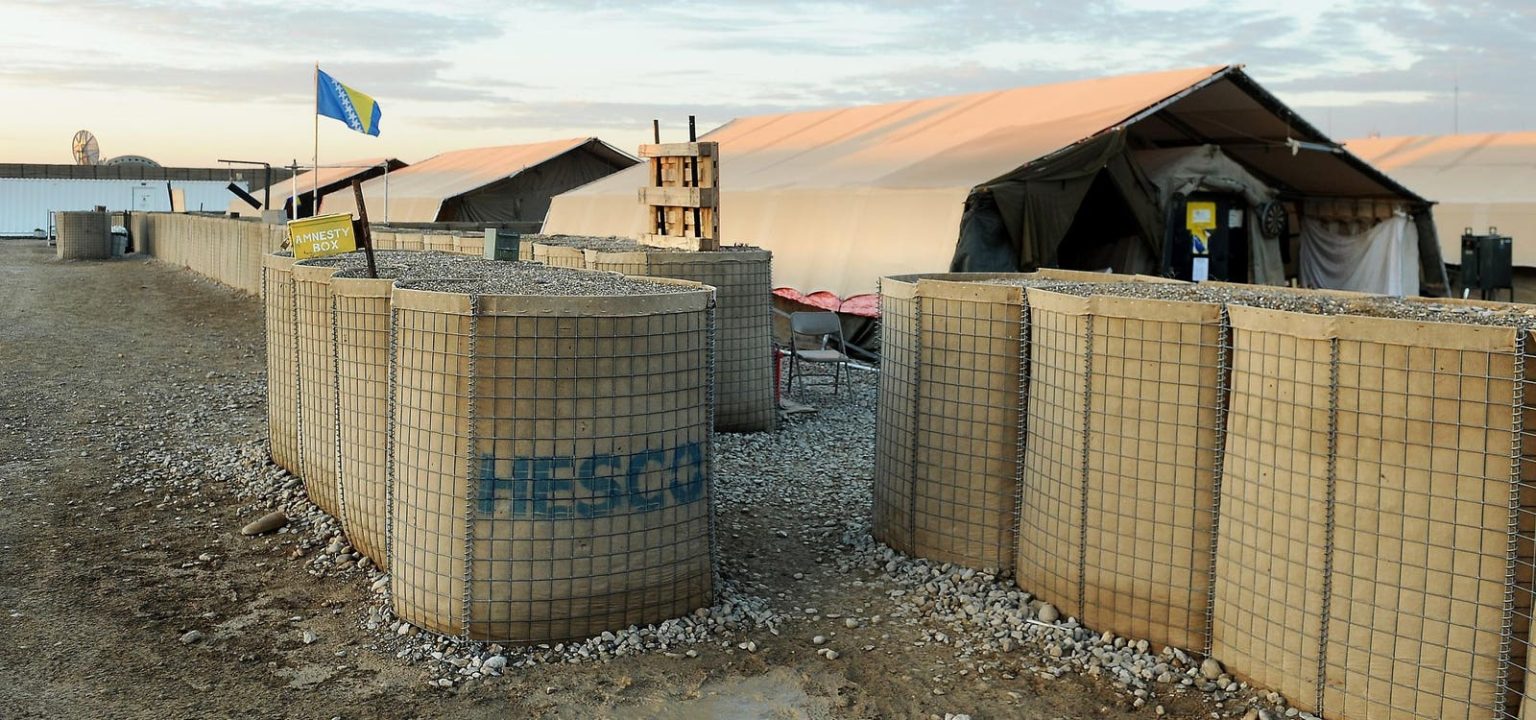The contents of aid packages sent to Ukraine typically offer insights into the status of the Russia-Ukraine War and assist in forecasting the upcoming phases of military operations. For example, leading up to the Ukrainian counter-offensive, the aid packages included a number of armored vehicles and other systems that would be needed to attack Russian forces. The most recent aid package was discussed in the December 12 meeting between Ukrainian President Zelensky and American President Biden. A subsequent statement from the State Department enumerated the content of this aid, including a large amount of munitions, demolition equipment, and HESCO barriers. While many of the items were expected, the inclusion of HESCO barriers indicates a possible shift in the Ukrainian war effort to being more defensive.
HESCO barriers are collapsible geotextile-lined, welded mesh baskets that unfold into large cubes. Once unfolded, these cubes are then packed with dirt and interlocked together to form a wall. Since each basket contains a substantial amount of packed dirt, a HESCO wall is able to withstand a significant blast and stop most direct-fire rounds, offering more protection than a concrete wall. Furthermore, a team of soldiers equipped with a front-end loader can rapidly fill these baskets, effectively establishing a very strong defensive position in a matter of hours.
Originally designed for flood control purposes, HESCO barriers gained widespread military application during the 1960s. They became a staple asset during the Global War on Terror, particularly associated with U.S. forward operating bases. Many of these bases were enclosed by a stacked wall of 2 m HESCO cubes. Though not intended to be a permanent structure, these barriers can maintain their structural integrity for over a decade. Given their extensive use by the U.S. military, it is likely that substantial stockpiles were available to be provided to Ukraine.
The delivery of HESCO barriers to Ukraine indicates a need for the Ukrainians to quickly assume a defensive posture, likely to fight back a new offensive launched by Russian forces. While this Russian offensive has already started, it will likely escalate in the coming months. These barriers will offer Ukrainian forces the means to fortify their positions and construct expeditionary bases along their current lines. Upon establishing these fortified positions, the Ukrainian forces can integrate the physical defenses with other key equipment, including anti-air assets and electronic warfare equipment to jam drones. Such positions would be difficult for Russian forces to overrun.
A major objective of the Russian offense is to push the Ukrainian forces back across the Dnipro River. Indeed, one of the few Ukrainian successes in their counter-offensive was securing a bridgehead across the Dnipro River at Krynky, which is currently being held by a small force of approximately 300 Ukrainian marines. Russian forces have sent multiple units to destroy this Ukrainian bridgehead. Though the Ukrainians repulsed these attacks, their position is quite vulnerable. Pallets of collapsed HESCO barriers can easily be delivered to Krynky to allow the Ukrainian marines to fortify their positions, allowing them to repel the next waves of attacks.
Russian forces are also making offensive pushes in Luhansk Oblast and Donetsk Oblast. They are attempting to capture all of Luhansk Oblast and are currently advancing to take Kupyansk and Kreminna. Meanwhile, in the Donetsk Oblast, the Russian forces are advancing from Bakhmat and are making a concentrated effort take the town of Avdiivka from Ukrainian control. While much of this fighting is complicated by the urban environment, HESCO barriers would allow the Ukrainian forces to quickly establish defensive positions in and around the towns. They will also allow the Ukrainians to fortify key infrastructure in the area, allowing them to better withstand Russian artillery.
The delivery of HESCO barriers could also indicates a longer-term plan for Ukrainian forces to assume a more defensive posture. This defensive strategy, which demands fewer resources, becomes increasingly essential as foreign support may potentially be diminishing. However, this shift in posture is likely only temporary, allowing the Ukrainians to buy time to receive the equipment that has already been promised from other nations. Furthermore, it allows Ukrainian troops crucial time for training with newly acquired equipment, notably the fighter aircraft pledged by the United States.
The ongoing conflict between Russia and Ukraine remains dynamic, with both sides alternately needing to adopt offensive and defensive postures. Both sides have exhibited adeptness in integrating both traditional and modern technologies to gain a strategic advantage in the conflict. While much can be said about the new technologies, some of the older technologies, such as HESCO barriers, have the potential to provide an advantage, especially as the Ukrainians shift from their counter-offensive to being in a defensive posture.
Read the full article here





